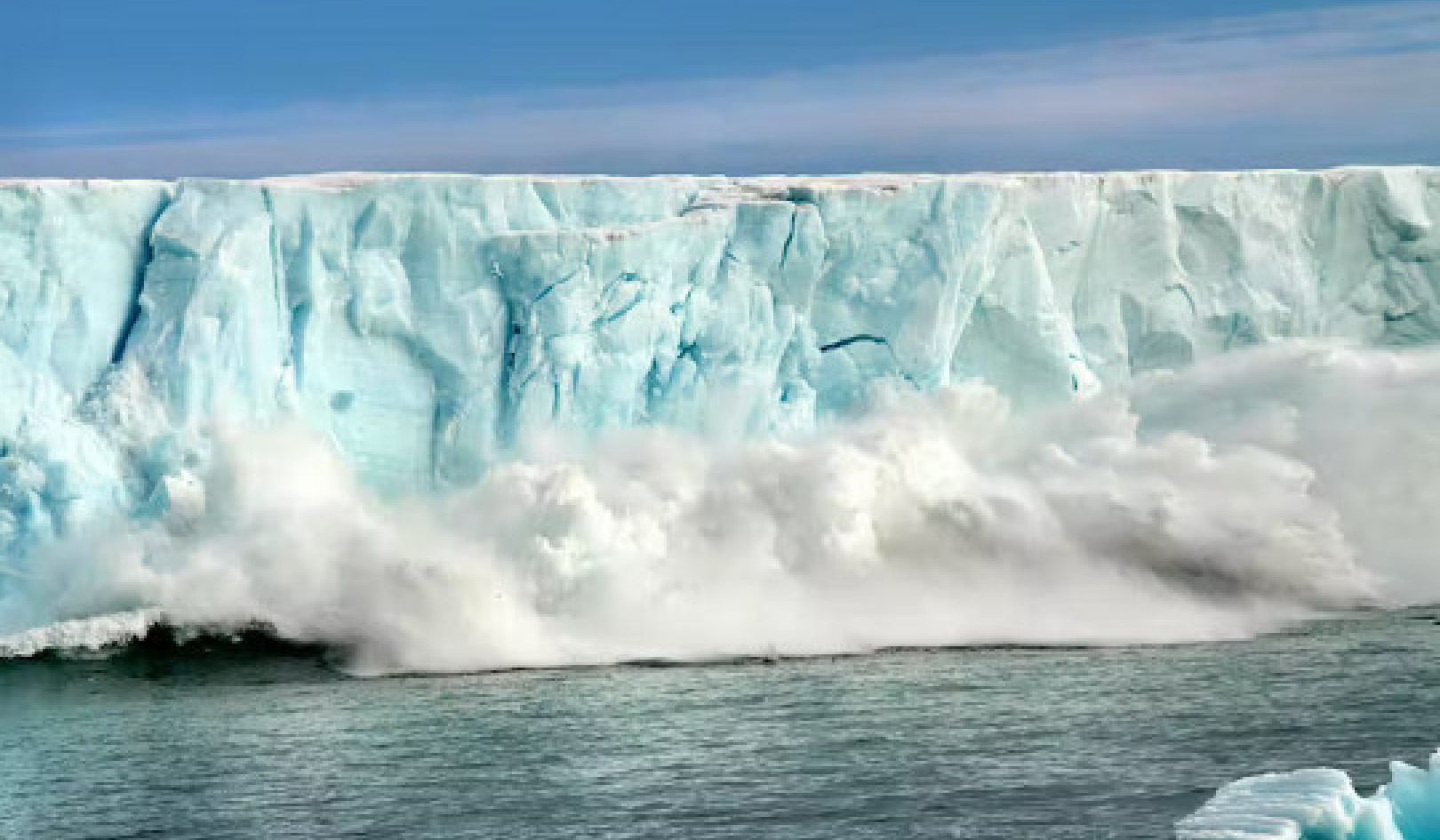
We unthinkingly defend a consumerist worldview when confronted with evidence of environmental threats such as climate change. (Shutterstock)
We’re all going to die. This is the repeated warning about climate change in some media: if we don’t change our ways we face an existential threat.
So why haven’t we got a policy solution in place? Reducing emissions is in our best interest, but despite widespread popular support for government action, implementing policies and programs continues to be difficult. Social science research shows that the more we hear about climate change, the less inclined we are to take action.
Talking about climate change reminds us that we are going to die, and that our modern way of life is killing our environment. Research in social psychology shows that hearing about climate change often prompts people to go out and buy more stuff.
However, participating in rituals that inspire gratitude for nature can reduce the desire to over-consume — and thus reduce the greenhouse gas emissions that fuel climate change. My research indicates that unconscious motivations and ritual practices may be more effective in shifting our behaviour than rational arguments in the fight against climate change.
The science is clear
We have lots of data on climate change, and there is scientific consensus on its accuracy. The topic is constantly in the press, yet most governments have been unable to put effective policy solutions in place. The reason for this is fear.
Death awareness makes people want to defend the worldview their sense of self-worth is vested in. Despite the fact that most people consciously endorse a scientific worldview and think that protecting the environment is important, we unconsciously believe consumption produces happiness.
It is this consumerist worldview that we unthinkingly defend when confronted with evidence of environmental threats such as climate change.
Motivations are tricky
Science tells us about environmental problems, but it does not necessarily motivate us to do anything about them. Research in behavioural economics and social psychology demonstrates a variety of unconscious factors that continue to influence us no matter how educated we are, or rational we think ourselves to be.
When people feel threatened, they tend to double down on their existing views. This is sometimes referred to as the boomerang or backfire effect, and it contributes to climate change denial.
Talking about climate change can be counterproductive to getting people to reduce emissions because providing more information only further convinces people that they are right. Threatening images and rhetoric can do more harm than good.

We unconsciously hold a consumerist worldview that equates consumption with happiness. (Shutterstock)
When climate change feels like too big a problem, we tend to shut down or blame others. Talking about it is overwhelming — it makes us feel guilty, afraid and apathetic.
One of the most common effects of making people aware of their mortality is the scapegoating of others. Mortality awareness increases out group hostilities. It instigates attempts to displace blame and increases polarization in society.
We like to blame industry and corporations for climate change, but individual and household contributions have a substantial impact, accounting for 72 per cent of global greenhouse gas emissions, mostly from food and its production, heating and cooling homes and the fuel used by private vehicles. Our personal actions matter.
Former chief of staff of the U.S. Environmental Protection Agency Michael Vandenbergh reports that individuals are the largest remaining sources of climate change emissions. Household emissions rise with increases in household income.
Strategic actions
Raising awareness about climate change should not be an end in itself. Bringing the problem to mind is not necessarily helpful, and without a solution, it may do more harm than good.
Environmental protection is widely supported, but talking about climate change and global warming can be negative triggers that tune out the people we want to reach. Framing the message in terms of the shared values of the target audience is effective.
Research shows a range of possible responses to climate change messaging that arouses mortality awareness. Threats make environmentalists act in defence of their identity as environmentalists, but campaigning against air pollution can be a more pragmatic strategy for motivating climate change deniers. To use the effects of death awareness to promote pro-environmental behaviour, we need to activate shared norms from which people’s sense of self-worth derives.

About 72 per cent of global greenhouse gas emissions are linked to individual and household actions, such as driving. (Shutterstock)
We can use behavioural economics and other psychological effects to promote pro-environmental behaviour. These sort of psychological effects can nudge people toward better civic actions.
Implementing a “choice architecture” — the way choices are presented — that defaults to better environmental options makes people more likely to make pro-environmental decisions. The options available, and how they are presented, influence people’s actions. For example, walkable neighbourhoods reduce emissions by making walking and cycling pleasurable choices, while winding suburban streets and big parking lots prompt people to drive to more.
When talking about environmental concerns, avoiding the use of economic language such as costs and drawing attention to gratitude can help keep environmental values top of mind instead of triggering the psychological effects that stimulate consumerism.
Expressing appreciation for what we have been given and publicly sharing our gratitude inspires a sense of contentment that makes people want to give in turn. Practices of praising ancestors (ancestor veneration) are surprisingly pro-environmental because they prompt people to want to pass on what they have been given rather than consume more themselves.
Raising awareness of these unconscious effects does not make them go away. We continue to be affected by these psychological effects even after learning about them, so we would do better to use them constructively.
About the Author
Barbara Jane Davy, PhD candidate, environment, resources and sustainability, University of Waterloo
This article is republished from The Conversation under a Creative Commons license. Read the original article.
Related Books
Life After Carbon: The Next Global Transformation of Cities
by Peter Plastrik , John Cleveland The future of our cities is not what it used to be. The modern-city model that took hold globally in the twentieth century has outlived its usefulness. It cannot solve the problems it helped to create—especially global warming. Fortunately, a new model for urban development is emerging in cities to aggressively tackle the realities of climate change. It transforms the way cities design and use physical space, generate economic wealth, consume and dispose of resources, exploit and sustain the natural ecosystems, and prepare for the future. Available On Amazon
The future of our cities is not what it used to be. The modern-city model that took hold globally in the twentieth century has outlived its usefulness. It cannot solve the problems it helped to create—especially global warming. Fortunately, a new model for urban development is emerging in cities to aggressively tackle the realities of climate change. It transforms the way cities design and use physical space, generate economic wealth, consume and dispose of resources, exploit and sustain the natural ecosystems, and prepare for the future. Available On Amazon
The Sixth Extinction: An Unnatural History
by Elizabeth Kolbert Over the last half-billion years, there have been Five mass extinctions, when the diversity of life on earth suddenly and dramatically contracted. Scientists around the world are currently monitoring the sixth extinction, predicted to be the most devastating extinction event since the asteroid impact that wiped out the dinosaurs. This time around, the cataclysm is us. In prose that is at once frank, entertaining, and deeply informed, New Yorker writer Elizabeth Kolbert tells us why and how human beings have altered life on the planet in a way no species has before. Interweaving research in half a dozen disciplines, descriptions of the fascinating species that have already been lost, and the history of extinction as a concept, Kolbert provides a moving and comprehensive account of the disappearances occurring before our very eyes. She shows that the sixth extinction is likely to be mankind's most lasting legacy, compelling us to rethink the fundamental question of what it means to be human. Available On Amazon
Over the last half-billion years, there have been Five mass extinctions, when the diversity of life on earth suddenly and dramatically contracted. Scientists around the world are currently monitoring the sixth extinction, predicted to be the most devastating extinction event since the asteroid impact that wiped out the dinosaurs. This time around, the cataclysm is us. In prose that is at once frank, entertaining, and deeply informed, New Yorker writer Elizabeth Kolbert tells us why and how human beings have altered life on the planet in a way no species has before. Interweaving research in half a dozen disciplines, descriptions of the fascinating species that have already been lost, and the history of extinction as a concept, Kolbert provides a moving and comprehensive account of the disappearances occurring before our very eyes. She shows that the sixth extinction is likely to be mankind's most lasting legacy, compelling us to rethink the fundamental question of what it means to be human. Available On Amazon
Climate Wars: The Fight for Survival as the World Overheats
by Gwynne Dyer Waves of climate refugees. Dozens of failed states. All-out war. From one of the world’s great geopolitical analysts comes a terrifying glimpse of the strategic realities of the near future, when climate change drives the world’s powers towards the cut-throat politics of survival. Prescient and unflinching, Climate Wars will be one of the most important books of the coming years. Read it and find out what we’re heading for. Available On Amazon
Waves of climate refugees. Dozens of failed states. All-out war. From one of the world’s great geopolitical analysts comes a terrifying glimpse of the strategic realities of the near future, when climate change drives the world’s powers towards the cut-throat politics of survival. Prescient and unflinching, Climate Wars will be one of the most important books of the coming years. Read it and find out what we’re heading for. Available On Amazon
From The Publisher:
Purchases on Amazon go to defray the cost of bringing you InnerSelf.comelf.com, MightyNatural.com, and ClimateImpactNews.com at no cost and without advertisers that track your browsing habits. Even if you click on a link but don't buy these selected products, anything else you buy in that same visit on Amazon pays us a small commission. There is no additional cost to you, so please contribute to the effort. You can also use this link to use to Amazon at any time so you can help support our efforts.






















